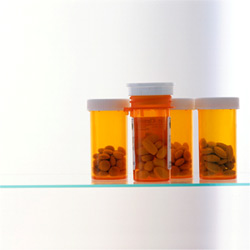Bipolar, Schizophrenia and Depression Are Genetically Linked
I know to some people, saying that bipolar, schizophrenia and depression are genetic is like saying the sky is blue. We know that these illnesses are genetic. It’s obvious. It’s also pretty obvious (to, me, anyway) that bipolar disorder, depression and schizophrenia overlap in some ways. Nonetheless, some people require yet more proof. Well, welcome to some more proof. Bipolar disorder, schizophrenia, depression (and actually autism and alcoholism) are genetic and these illnesses’ genes even overlap. Yes, we bipolars are genetically linked to our brothers and sisters with other psychiatric disorders.
Read More














Recent Comments